


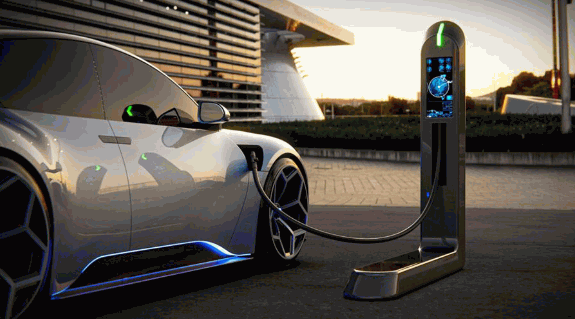
Electric cars are becoming more and more commonplace. The UK government has pledged to be net-zero for greenhouse gases by 2050 and increasing the use of electric cars is a key aspect of reaching that goal. Company cars and fleets make up a large portion of vehicle use so the government now provides a range of incentives to encourage companies to use electric cars rather than petrol and diesel cars. If you buy an electric company car through a limited company, then you can access these incentives and tax benefits and lower the cost associated with the vehicle.
If you need advice and guidance on buying an electric car through your limited company, Prescient Accounting can help. We understand the intricacies of the tax system and how it relates to company cars, as well as the tax implications of this for both the company and its employees. Electric cars can provide significant tax advantages as long as the correct conditions are met, and our expert team can guide you through the process.

Electric vehicles come in two main forms:
Fully electric cars are entirely reliant on electric power. There is no other method for powering the vehicle.
Hybrid cars, on the other hand, have both electric power and a gas-powered engine. Either can be used to power the vehicle. Some hybrid cars can be plugged in to charge whereas others will charge their electric battery through regenerative braking and the gas-powered engine.
Plug-in hybrid cars can use much more electric power and can travel further distances using electric power alone, and they will also have much lower CO2 emissions than non-plug-in hybrid cars.
Where this distinction becomes relevant for buying an electric car through your limited company is the emissions.
A fully electric car will produce zero emissions (0g/km). A hybrid car, on the other hand, will produce some emissions. The exact amount they produce will vary depending on the type of hybrid technology used and the type of vehicle but it could range from 30g/km up to 150g/km. This is still much lower than the average emissions of petrol and diesel cars at 350g/km.
The government incentives for buying an electric vehicle for company use will be greater for zero-emissions cars than for hybrid cars that produce some emissions.
Take a look: Private Limited Company Advantages And Disadvantages
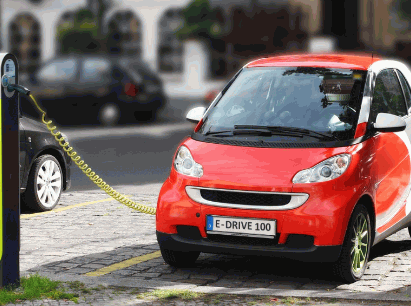
Before going ahead with the purchase of an electric car through your limited company, you should consider some key aspects of the type of vehicle.
It is also important to remember that electric cars and other vehicles are generally more expensive to buy upfront than their petrol and diesel counterparts. Even with the incentives that the government provides plus the lower fuel costs, it may be some time before you break even on the purchase.
Another key aspect to consider is whether the vehicle is for business use, personal use, or a mix of both. This distinction will have key impacts on how tax-efficient the purchase will be.
A company car that is solely for business use can in practice be difficult to achieve. It will need to remain on business premises. Any use for commuting to and from work will be counted as personal use.
A car that is fully for business use will usually be something like a pool car where the car is situated at the business and is used by all employees.
There is the potential for substantial savings on Corporation Tax when you buy an electric car through your limited company.
If you buy a new electric vehicle (you are the first registered owner), you will be eligible for a First Year Allowance (FYA) of 100% against your Corporation Tax bill.
This means you can deduct the full cost of the vehicle from your profits before you pay tax.
The vehicle must be brand new and fully electric with zero emissions of 0g/km of CO2.
You can also claim Corporation Tax relief on the maintenance and insurance of the vehicle.
If you go on to sell the vehicle, you will be charged Corporation Tax on the proceeds of the sale as these will be classed as a taxable income.

You won't be able to claim 100% First Year Allowance (FYA) when buying a used or second-hand electric car through your limited company.
You will still be able to benefit from capital allowances but at a lower rate of 18% rather than 100%. This means that you can claim tax relief on 18% of the purchase price of the car on your profits before you pay tax on them.
This is also the case for new cars that aren't zero emissions but have low emissions of less than 50g/km CO2.
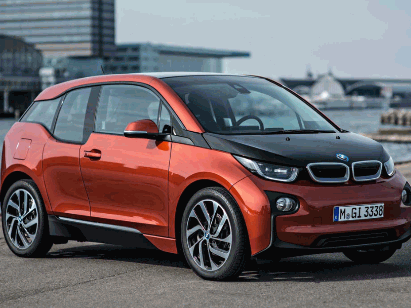
If you obtain your electric company car through a hire purchase agreement, you will still be eligible for the 100% First Year Allowance.
You can also access savings on the interest of your monthly repayments.
If you obtain an electric car through a lease agreement without the prospect of ownership at the end, you will not be eligible for Corporation Tax relief on the monthly rentals.
These payments will instead be included in the profit and loss account of your business. This will lower the company's profit, and therefore reduce your Corporation Tax bill.
Value Added Tax (VAT) is charged on goods and services that are provided by VAT-registered companies. As a VAT-registered company, you can reclaim the VAT paid on goods and services that are used for business purposes. This applies to buying electric vehicles for business use.
The common sticking point, however, is that the company car will need to be used exclusively for the business, with no personal use at all. And this is often difficult to achieve in a practical sense.
If the car is used for both personal and business journeys, you won't be able to reclaim the VAT you paid when you purchased the vehicle. You won't, however, then need to charge VAT when you sell the vehicle which can make it a more attractive option for buyers.
If the company car is not purchased outright but is instead leased, you will be charged VAT on your monthly payments. You can claim back:
Gain insights: How To Avoid Paying VAT On Commercial Property
The government is dedicated to pursuing zero emissions by 2050 and, as such, has created specific grants related to the use of electric vehicles by businesses. There are two main government grants available for companies that use electric cars:
The charging scheme grant provides incentives for companies to create infrastructure on their business premises to allow for the charging of electric vehicles.
You can claim 75% of the cost of installing charging point infrastructure at your workplace with an upper limit of £15,000.
This includes up to:
This isn't a grant that you can claim yourself. Instead, it is provided to the seller of an eligible electric vehicle and results in a lower purchase price for you.
Electric cars used to be included in this grant but they are no longer. Eligible electric vehicles include:

An electric company car doesn't just have implications for Corporation Tax savings for the business. It can also impact the tax benefits of the employee who has used the vehicle.
Benefits in Kind are benefits that an employee or director of a company receives that aren't included in their salary or wages. It is a non-cash advantage provided by the company by an employer to an employee for personal use.
Here again, the distinction between a company car for personal use and one for business use or mixed uses becomes crucial. If an electric car is provided by the company and is solely used for business purposes then it is not a Benefit in Kind (BiK).
If, however, the company car is for personal or both business and personal use, then it is classed as a Benefit in Kind.
Benefits in Kind have tax implications for both the employer and the employee who has received the benefit.
Benefits in Kind are part of the employee's taxable income. This is to prevent salary substitution and ensures that HMRC receives all of the tax it is due.
The tax is payable at the employee's income tax rate:
Companies are required to pay National Insurance Contributions (NICs) on Benefits in Kind that they offer to their employees. This is at a rate of 13.8% of the determined value of the Benefit in Kind.
Company cars are a specific type of Benefit in Kind that is subject to company car tax. And it is here that choosing an electric car over a petrol or diesel car can impact the amount of payable tax.
The amount of company car tax you pay is based on a few different factors, including:
Benefit in Kind (BiK) company car tax rate for standard petrol and diesel cars is currently 25%, although this value can go up to 37% for vehicles with the highest emissions.
For electric cars, the BiK company car tax rate is currently 2% and will remain at this level until the end of the 2024/25 tax year. After this, the rate will rise by 1% every year for the following three years until it is at 5% in the tax year 2027/28.
Even at 5%, these rates are much lower than they would be for a petrol or diesel vehicle.
Let's put Benefit in Kind (BiK) income tax and company car tax rates together to highlight the savings that an employee can expect if they are given an electric car to use instead of a petrol or diesel car.
Let's use two working examples to highlight the potential tax savings.
An electric company car worth £30,000 is given to an employee to use. The company car tax rate for an electric car is 2% of its value. This means that for that tax year, they will owe 2% of £30,000, which is £600.
But they won't pay all of that £600. They will only pay the amount dictated by the income tax rate band.
Let's compare this to a petrol or diesel company car.
A petrol company car worth £30,000 is given to an employee to use. The company car tax rate is 25% of its value. This means that for the tax year, they will owe £7,500.
The amount they will need to pay will depend on their income tax bracket.
For employees using an electric car, they will owe between £120 and £270 per year. For employees using a petrol or diesel car, they will owe between £1,500 and £3,375 per year. This is quite a significant jump.
Employers pay National Insurance Contributions (NICs) on Benefits in Kind given to their employees at a current rate of 15.05%. But this is only paid on the taxable benefit. For an electric car, this is 2% of its value. For petrol or diesel cars, there is a maximum charge of 37%. For standard cars, however, it is currently 25%.
The company gives its employees an electric car to use that is valued at £30,000. The taxable benefit is 2% of this, which is £600.
The employer will owe NICs 15.05% of £600, which is £90.30.
The company gives its employees a petrol car to use that is valued at £30,000. The taxable benefit of this is 25%, which is £7,500.
The employer will owe NICs 15.05% of £7,500, which is £1,128.75.
This is, again, a significant jump in cost.
The 2% rate we are discussing is for a fully electric car. The rates are different for hybrid cars depending on their CO2 emissions rate.
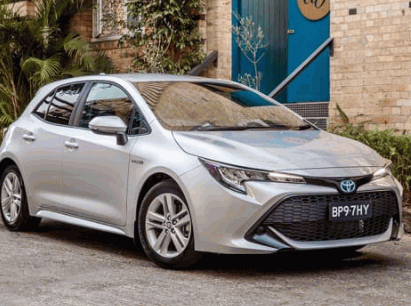
Hybrid cars that can't be charged with a plug can usually only travel less than a mile using electric power. They are treated the same as petrol and diesel cars for tax purposes.

Hybrid cars that can be charged with a plug will vary in the amount of company car tax based on how many miles they can travel using electric power only.
This can range from a 14% BiK rate for cars that can travel less than 30 miles with electric power down to 5% if it can travel between 70 and 129 miles. If it can travel more than 130 miles using electric power alone then it is treated as a fully electric car and has a BiK rate of 2%.
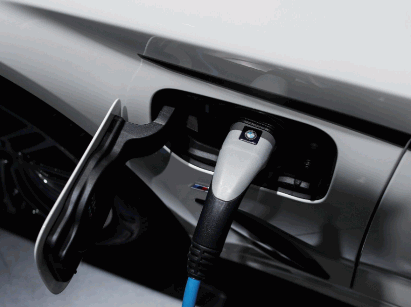
Our professional accounting services can support you and your company in developing sound practices that reduce your tax burden while also being fully compliant with HMRC rules and regulations. Purchasing an electric car for business can have a significant impact on your tax outgoings but is subject to complex conditions. Our expert team of accountants can help you navigate this system and ensure that you are making the most beneficial choices for your company car usage.
Buying an electric car through your limited company can have a substantial impact on the amount of tax your company will owe. There can be savings through:
For employees receiving a company car as a Benefit in Kind, an electric vehicle can reduce the amount of Income Tax they need to pay.
Many of these tax benefits will only apply to fully electric vehicles and/or hybrid vehicles that can be charged with a plug (although plug-in hybrids will usually have smaller tax benefits than fully electric cars). Hybrids that cannot be charged with a plug will usually be treated the same as a petrol or diesel car.
Some benefits will only apply to new electric vehicles purchased outright or through a hire purchase agreement, although used and/or leased vehicles may provide some tax benefits of their own.
This is a complex area of taxation, and it is worth getting expert advice before going ahead and buying an electric car through your limited company to ensure that you are making the most tax-efficient decision.

We believe that the role of the accountant is much more than dealing with pure compliance. That’s why we’re offering a free video or telephone call with one of our team of chartered accountants, to give you straightforward and open dialogue about your tax and accounting affairs.